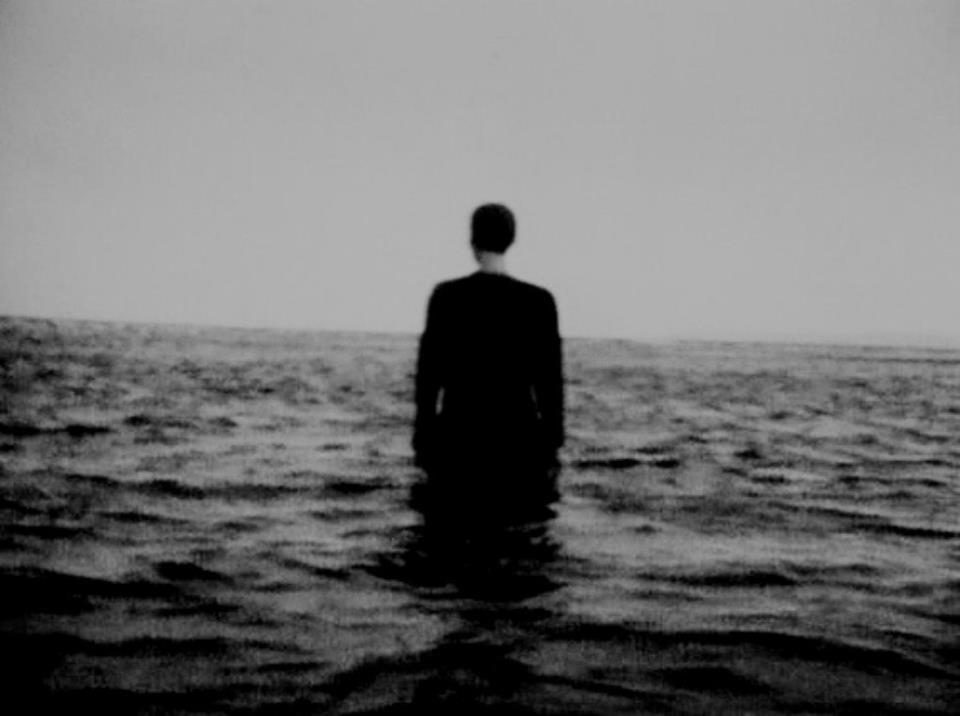Black Ocean is an independent publisher based out of Boston, with satellites in Detroit and Chicago. Known for their experimental and bold aesthetic, Black Ocean celebrates artists who color outside the lines & produce risk-taking literature with a purposeful vitality. Since 2004, the press has produced over 50 full-length poetry collections, including titles such as Druids by Tomaž Šalamun, Daybed by Zach Savich, Upon Arrival by Paula Cisewski, and The Man Suit by Zachary Schomburg. In addition to poetry, the press recently launched an exciting series of literary nonfiction titles—kicking off with Elisa Gabbert’s The Word Pretty.
In this latest installment of our Small Press Series for MQR Online, poet and founding editor Janaka Stucky shares why he started Black Ocean, takes us through a day-in-the-life of an indie press editor, spills his hopes and dreams for his press’s future, and recommends upcoming titles from new and returning Black Ocean writers.

Could you tell us a bit about the founding of Black Ocean? What inspired you to start it, and what was your original mission? What did you want Black Ocean to add/bring to the literary community that you didn’t see out there already?
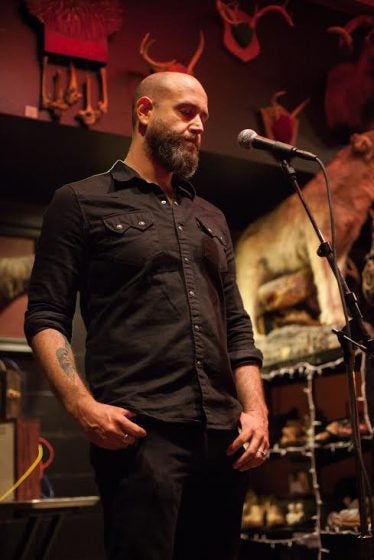
I came up in the New England DIY/punk/anarchist scene, and got involved with the national zine culture at an early age. At the same time, I was intensely immersed in reading & writing poetry, and so by the time I was 18 I was already dreaming about starting my own press. Fast forward a number of years and two poetry degrees later, and at the age of 26 I was trying to determine what my next move in life would be. The two paths ahead seemed to be either returning to school for a PhD, or starting that press I had been dreaming about for almost 10 years … I chose the latter.
At the time, poetry publishing was not an especially exciting world in the U.S. The larger, established publishers often treated new poetry as backlist titles out of the gate—with little attention to publicity and marketing. Meanwhile independent publishers, beyond a handful of newer houses, were mostly producing fairly ugly books from a design and production perspective. I wanted to create a press that would bring the attention of a major publishing house to quality and design, and treat poetry as a genre with frontlist potential.
I partnered with two other friends from grad school, and together we launched Black Ocean in 2004. This was right before the economic crash so I was able to secure a small business loan against my personal credit and use that money to buy a new desktop computer, some design software, and print our first four books in 2006. I was literally eating rice & beans, sharing a 4-bedroom apartment with six other people, and launching a new publishing company! While most poetry titles sell maybe 200 copies in the U.S., from the beginning we were doing print runs of 2,000. We also set out with a strong, simple visual identity and attention to detail. I think our belief and commitment in the work, and a little luck, helped us quickly build an enthusiastic and dedicated readership. As a press that focuses the majority of our catalog on publishing new voices, many people simply seek out “the next Black Ocean book.” It’s incredible that people trust us to help them discover their next favorite poetry title. To this day we have some titles that go through second, third, and even fourth printings. Selling 8,000 copies of a poetry title is remarkable.
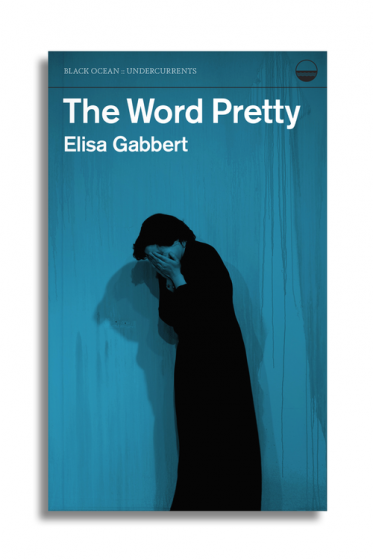 In December we published our 50th title, launching a new essay imprint called Black Ocean :: Undercurrents, with Elisa Gabbert’s The Word Pretty. The book has taken off, with multiple reviews in the NYT, the LARB, among other big venues—and the first printing of that book sold out in 60 days! Recently we announced that Black Ocean has acquired the Seattle-based poetry publisher Gramma Press, with their nine titles—since they lost their philanthropic funding. We’ve come a long way since 2004 and in some ways we’re still the same. I had rice & beans for dinner I think three times this week!
In December we published our 50th title, launching a new essay imprint called Black Ocean :: Undercurrents, with Elisa Gabbert’s The Word Pretty. The book has taken off, with multiple reviews in the NYT, the LARB, among other big venues—and the first printing of that book sold out in 60 days! Recently we announced that Black Ocean has acquired the Seattle-based poetry publisher Gramma Press, with their nine titles—since they lost their philanthropic funding. We’ve come a long way since 2004 and in some ways we’re still the same. I had rice & beans for dinner I think three times this week!
Editorially speaking, what makes a book a Black Ocean book? What are its necessary ingredients?
I look for work that invokes in me a sense of dread and awe. I’m sure our poetry editor, Carrie Adams, has a different criteria. What gets published are the titles that meet in the middle of our venn diagram. I’d say our catalog trends toward the darkly surreal, lyric, and experimental—but that isn’t always the case.
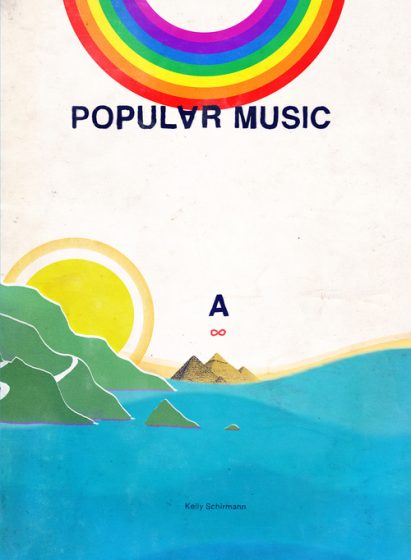 When we met at Grub Street last April, I recall you mentioning the rigorous marketing plan you require of your authors (e.g. public readings, selling books, etc.) Can you tell us more about the thought behind that?
When we met at Grub Street last April, I recall you mentioning the rigorous marketing plan you require of your authors (e.g. public readings, selling books, etc.) Can you tell us more about the thought behind that?
Yes, I’m a firm believer in public readings and touring behind books—so I seek authors who will put themselves out there in that way. It’s not the only path, but it’s an effective one for those that can figure out how to make it work in their lives. It’s not about the books you sell at the reading however; it’s about creating a public conversation around your work. So that can also be done through getting reviews, doing interviews, social media etc. But you have to find some way to have that conversation. A Facebook post that says, ‘Hey I have a book, please buy it!” is not a conversation, and it’s not an effective way to promote your work.
Can you describe the Black Ocean office? As a small and independent press, what does a functioning day look like for you?
Our office is really just a few home offices spread around the country, in Boston, Chicago, and Detroit, as well as a small studio space in the Boston area that’s about 300 square feet. The studio space also functions as a pop-up bookstore when we host small, intimate readings or workshops there. Otherwise, I do most of my work from home. We are also all-volunteer run, including myself, which means we all have “day jobs” to pay the bills. One hundred percent of profit goes back into operational expenses and expanding our catalog. So a functioning day for me involves maybe 30 minutes of Black Ocean related correspondence early in the morning, another hour midday over lunch, then whatever still needs to be done for that day in the evening. Additional work on the weekends. It’s a labor of love, to be sure.
What does Black Ocean’s relationship with bookstores look like?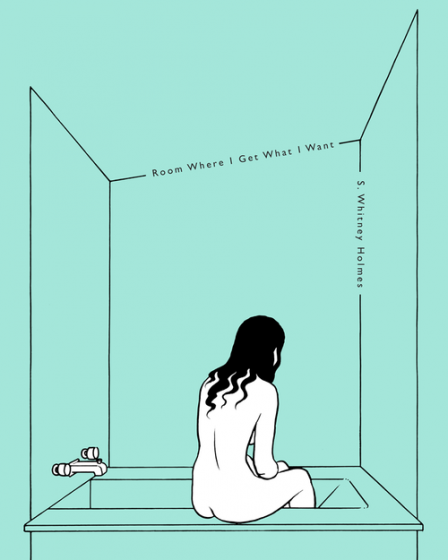
Small Press Distribution handles most of our retail sales, but we also strive to cultivate direct relationships with indie bookstores—which are mutually beneficial. The book industry is a special, backwards beast. I don’t know of any other retail market where stores are allowed to order as much stock as they want, keep it for 2-3 months, then return whatever they don’t sell for a full refund. This model started as an incentive program by one big publisher in the mid 20th-century and it soon became the norm. Aside from it being an accounting nightmare, it is really damaging for indie publishers. It’s not uncommon for stock to be returned in unsellable condition. Also, when you have a “hot” title—like we recently did with The Word Pretty—suddenly everyone wants forty copies of it for their shelves. So you end up in a situation where there is no more available inventory because all your books have shipped out to these stores, but 60% of that could get returned to you in a few months. In the meantime you can’t wait to do a second printing, but you don’t know what a realistic number is for that printing. This situation actually almost sunk one very big indie publisher when they had a huge NYT hit on their hands. They did massive print runs to keep up with demand, then the returned stock a few months later almost bankrupt them. So, as an alternative, we have an indie bookstore program which offers stores a steeper discount and free shipping, but on a nonrefundable basis. It makes a lot of sense for any store that takes the time to pay attention to what it can realistically sell, and it’s become an increasingly popular program for us.
Looking ahead, what are your goals for Black Ocean in the next five years?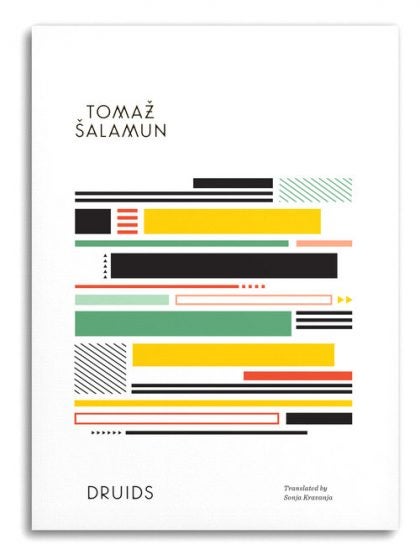
I’m really excited for our new essay series, Black Ocean :: Undercurrents, which publishes new and compelling voices in literary nonfiction. From lyric essays to manifestos and poetics, the series combines criticism, meditation, and reflection to experience elevated modes of consciousness and vital ways of operating in the world. It launched in December with Elisa Gabbert’s The Word Pretty, and the second title in the series will be Anaïs Duplan’s collection of essays and interviews, Blackspace, forthcoming in the fall. I hope to continue publishing one or two titles in that series each year. We also have a new Korean poetry translation series called Moon Country, starting in 2019, working with the Korean Language Translation Institute in Seoul, which will publish one to two titles every year for the next five years.
Your own full-length poetry collection, The Truth Is We Are Perfect, was the inaugural title of musician Jack White’s publishing imprint, Third Man Books. How does running Black Ocean influence your personal career as a poet?
I actually have a new collection that just came out with Third Man Books too, titled Ascend Ascend, which is a pretty big departure for me. It was written over the course of twenty days, coming in and out of trance states brought on by intermittent fasting and somatic rituals while secluded in the tower of a 100-year-old church up in New Hampshire. It’s rooted in the Jewish mystical tradition of Hekhalot literature, which chronicles an ascent up the Kabbalistic Tree of Life to witness the Merkabah, or “chariot of God.” The whole book is one long poem documenting the ecstatic destruction of the self through its union with the divine. My publisher describes it as “equal parts Walt Whitman’s ‘Song of Myself’ and Funkadelic’s ‘Maggot Brain,’” which I get a kick out of! Keeping in theme with straddling the line between music and poetry, the book has blurbs from both Anne Waldman and Led Zeppelin’s Jimmy Page. The work is not only meant to be read, but also performed as a kind of public ritual for personal transformation.
So I’m currently working on a 30+ date international book tour, and as I’m booking my own tour I’m also talking with my authors about their tours. Sometimes we get to do shows together, or even tour together, and that’s very special to me.
That said, being an editor/publisher of poetry while also engaging with contemporary poetry as a poet, and simply as a reader, is often times pretty difficult. Figuring out how to divide a limited resource like time between my own work, the work of the poets I publish (or might publish), and everyone else’s work is an ever-evolving experience. At times, being the publisher of Black Ocean makes me feel very engaged with contemporary poetry, and at other times, I feel like I’m only in the silo of our own catalog and not plugged in to the rest of what’s new and interesting.
 Can you recommend a few upcoming Black Ocean titles we should keep on our radar?
Can you recommend a few upcoming Black Ocean titles we should keep on our radar?
Yes, we have some really exciting stuff in the works! The third title in our posthumous publication series for Tomaž Šalamun, Druids, just came out in February. Tomaž was always very supportive of Black Ocean, and before he died we worked with him on scheduling publication of three new translations of his work. Each volume in the series is beautifully produced as a gold-foil stamped clothbound hardcover book, with a linen dust jacket. The visual identity for the series was created in collaboration with award-winning designer, Abby Haddican, who also created a custom “Tomaž Šalamun font” for the books.
We also have a new book that came out in April by our best-selling author, Zachary Schomburg. Zach’s first book, The Man Suit, came out with us in 2007—and was chosen that year by the New York Public Library was one of the best books of 2007. The Man Suit now has 8,000 copies in print, and his subsequent titles with us have all seen multiple printings. This new book, Pulver Maar, will be his 5th book with us. Lastly, we have a debut author, Kristin George Bagdanov, releasing her first book, Fossils in the Making. We discovered Kristin’s work through our open reading period and were blown away by it. The book is incredible and I think it’s going to generate a lot of buzz.
 What books are in your personal TBR stack?
What books are in your personal TBR stack?
The majority of my recreational reading over the past few years has been either in mystical texts, non-fiction social sciences, and speculative fiction. I’m a habitual “future thinker,” which means at any given moment, I’m probably thinking seven weeks to three years out. This can be problematic during things like conversations or business meetings, but I find those genres of books related to human consciousness and possibility energizing and inspiring. They are fuel to the fire of my future-thoughts. To balance all that, I also have a daily meditation practice which is essential for finding my way back into the moment.
Cover image courtesy of Black Ocean.

